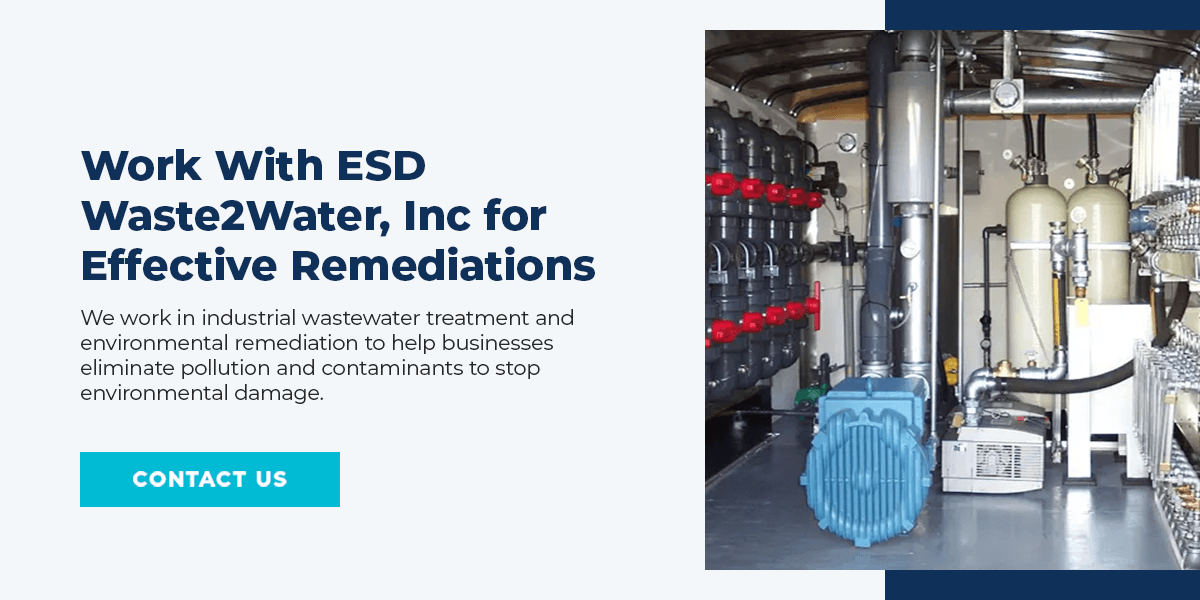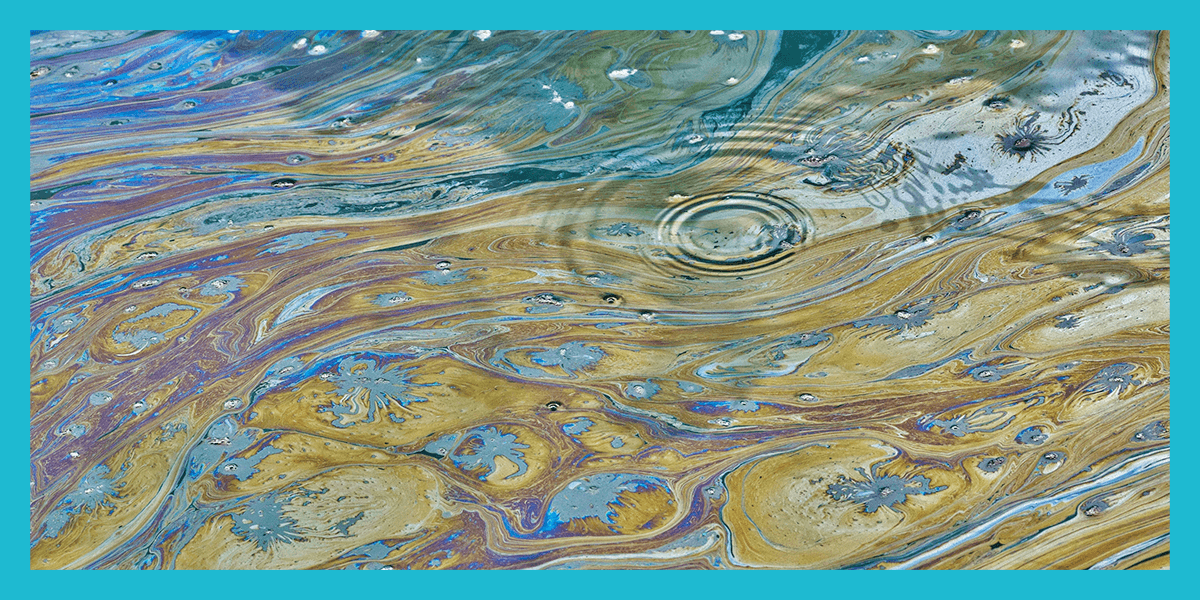
Water pollution is a pressing global issue that demands immediate attention. Businesses can play a pivotal role in resolving water pollution challenges by implementing effective strategies and investing in advanced water remediation equipment.
Investors, partners and stakeholders increasingly prioritize businesses that demonstrate responsible environmental practices, making reputation management vital. Addressing how to solve the problem of pollution and the mitigation of these negative impacts presents opportunities for businesses to showcase their commitment to sustainability, innovation and social responsibility.
By implementing effective water remediation strategies, companies can enhance their resilience, reduce operational risks, improve stakeholder relationships and contribute to a healthier environment. Explore more about water pollution and pollution problems and solutions below.
Common Water Pollution Issues
Water-related challenges are prevalent worldwide, affecting both natural ecosystems and human populations. Many industries generate wastewater containing pollutants such as heavy metals, chemicals and organic compounds. Improper disposal or inadequate treatment of industrial effluents can contaminate water bodies, threatening aquatic life and human health.
Industrial Pollution
Industrial pollution refers to the contamination of the environment, including air, water and land, as a result of industrial activities.
This category of pollution originates from various sources, including manufacturing processes, chemical production, power generation, mining, construction and waste disposal. Industrial activities generate wastewater that contains various pollutants, including heavy metals, organic compounds, acids and toxic chemicals.
Improper disposal of industrial waste, including solid waste and hazardous materials, can contaminate soil and water. Toxic substances, heavy metals and persistent organic pollutants can accumulate in the soil, posing risks to agriculture, vegetation and biodiversity. It can have severe health consequences for nearby communities. Contaminated water sources can cause waterborne diseases and long-term health risks due to exposure to toxic substances.
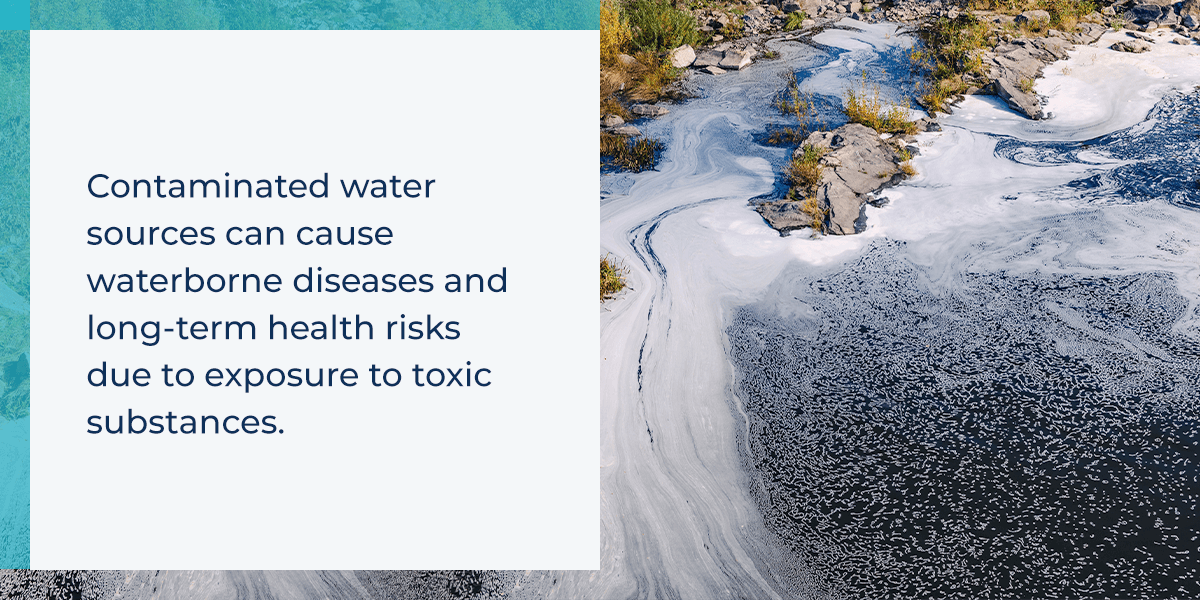
Agricultural Runoff
Agricultural activities often involve fertilizers, pesticides and herbicides, which can leach into water bodies through runoff. It occurs when excess water, carrying various substances from farming practices, flows off the land and enters nearby waterways.
Agricultural runoff occurs due to a combination of factors, including irrigation practices, rainfall and using fertilizers, pesticides and herbicides. Excessive irrigation or heavy rain causes water to move across fields, picking up sediments, nutrients and chemicals used in farming activities.
One of the primary concerns associated with agricultural runoff is nutrient pollution. Elevated nutrient levels in water bodies lead to eutrophication, causing excessive algal growth, oxygen depletion and disruptions to aquatic ecosystems.
Pesticides and herbicides also harm non-target organisms, impacting aquatic ecosystems’ biodiversity and ecological balance. Sediments cloud the water, reducing sunlight penetration and disrupting marine habitats. Sedimentation can also lead to silt buildup in reservoirs, rivers and lakes, reducing capacity and impacting water availability.
Oil Spills
Accidental oil spills can devastate bodies of water, harming marine life and contaminating water supplies. Oil spills can result from various sources, including maritime accidents involving oil tankers or offshore drilling platforms, pipeline ruptures, refinery or storage facility leaks, and the illegal dumping of oil waste. Oil spills pose severe environmental, ecological and economic consequences.
- Environmental impact: The spilled oil forms oil slicks on the water’s surface, coating and smothering plants, animals and marine organisms. Oil can contaminate shorelines, therefore affecting coastal habitats and the organisms that rely on them.
- Water quality issues: The chemicals in oil can contaminate the water column, reducing oxygen levels and affecting the survival of marine organisms. The presence of oil also hampers light penetration, disrupting photosynthesis and affecting the productivity of aquatic plants.
- Habitat destruction: Oil spills can cause significant damage to sensitive habitats such as coral reefs, mangroves, marshes and wetlands. These habitats serve as critical nurseries, feeding grounds and breeding sites for many species.
- Economic consequences: Fisheries and aquaculture industries may experience severe losses due to the contamination of fish stocks and shellfish beds, resulting in reduced harvests and potential long-term damage to commercial fishing grounds. The tourism sector, particularly in coastal regions, can suffer from negative perceptions and reduced visitation due to oil spills’ visual and environmental impacts.
Using Environmental Remediation to Address Water Pollution
Environmental water remediation refers to the process of restoring or improving the quality of water resources that have been contaminated by pollutants. It involves implementing various techniques, technologies and strategies to eliminate, reduce or mitigate pollution problems and give solutions to the presence of harmful substances in water bodies.
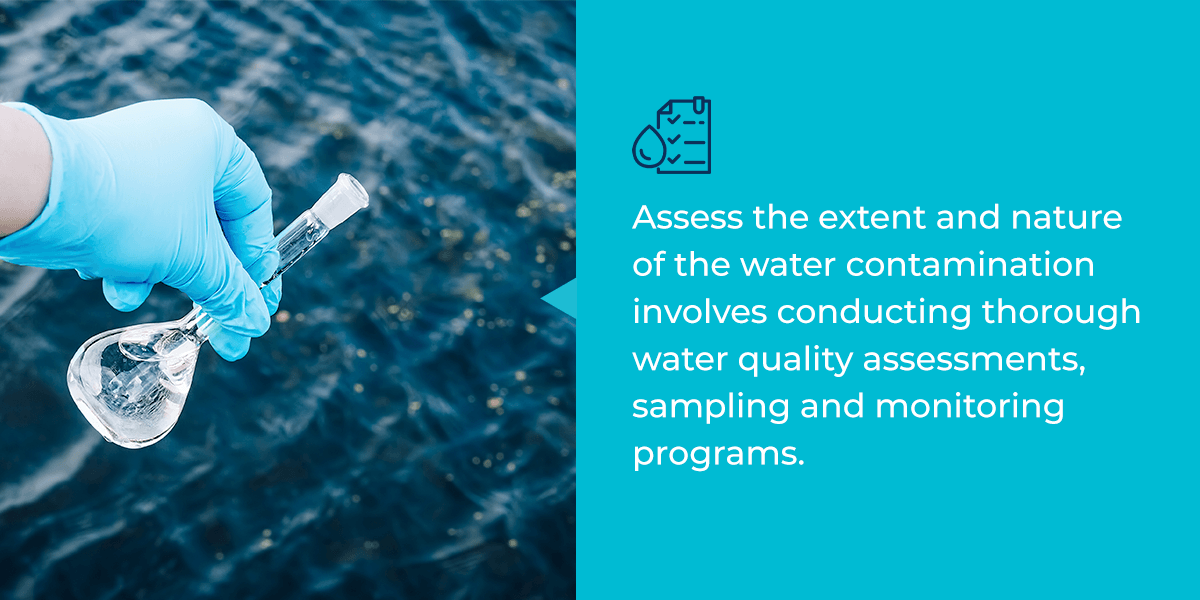
Before initiating remediation efforts, assess the extent and nature of the water contamination. This process involves conducting thorough water quality assessments, sampling and monitoring programs to identify the types of pollutants present, their concentrations and their potential impacts on ecosystems and human health. This information guides the selection of appropriate remediation techniques and gives possible solutions for pollution.
Remediation Techniques
Several techniques and technologies are available for environmental water remediation, each suited for specific contaminants and pollution scenarios. Here is how to solve pollution through water remediation:
- Physical remediation: Physical techniques involve removing pollutants through sedimentation, filtration and adsorption. Examples include using settling ponds, filtration systems and activated carbon filters.
- Chemical remediation: Chemical methods aim to alter or neutralize contaminants in water chemically. This can involve using coagulants, flocculants, oxidants or pH adjustments to precipitate or degrade pollutants.
- Biological remediation: Biological techniques employ living organisms to break down or metabolize pollutants. Bioremediation and phytoremediation are examples of biological remediation methods that utilize microorganisms or plants to degrade or absorb contaminants.
- Advanced technologies: Advanced technologies, such as membrane filtration, electrochemical treatment, ultraviolet disinfection and nanotechnology-based approaches, offer innovative and efficient means to remove or destroy contaminants in water.
Continuous Monitoring and Adaptation
Remediation efforts should be accompanied by continuous monitoring to assess the effectiveness of the chosen techniques and ensure water quality standards are met. Regular monitoring helps identify any potential issues or the need for adjustments in remediation strategies.
This approach often requires stakeholder collaboration, including government agencies, industry, local communities and environmental organizations. Engaging stakeholders throughout the process fosters transparency, shared responsibility and the incorporation of diverse perspectives, leading to more effective and sustainable remediation outcomes.
Benefits of Environmental Remediation for Businesses
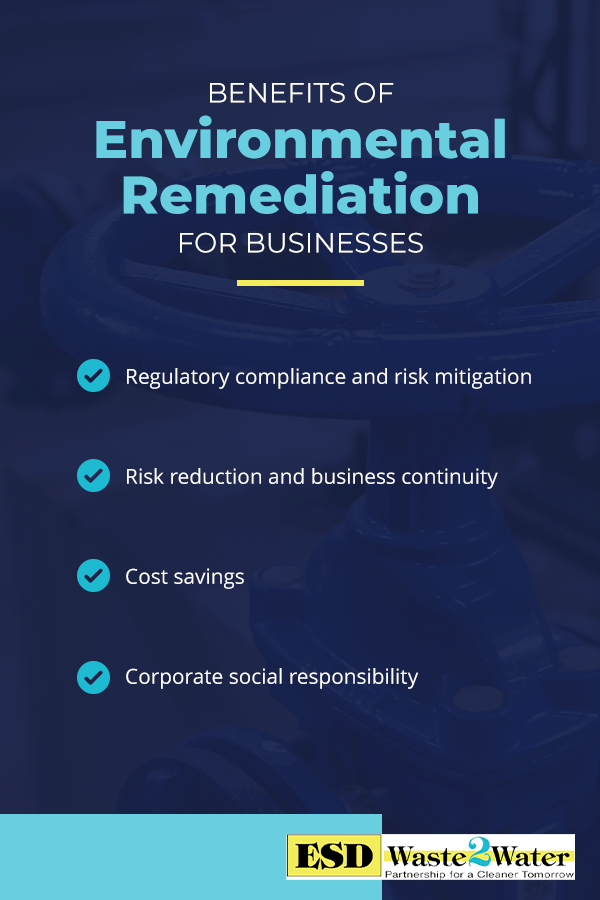
While the primary goal of remediation is to restore or improve the quality of the environment, it also offers tangible advantages for businesses. By recognizing and leveraging the benefits of environmental remediation, businesses can fulfill their ecological responsibilities and achieve positive business outcomes, such as:
- Regulatory compliance and risk mitigation: Meeting regulatory requirements helps avoid costly fines, penalties, legal actions and reputational damage. Remediation demonstrates a commitment to responsible environmental stewardship, reducing the risk of non-compliance-related setbacks.
- Risk reduction and business continuity: Implementing remediation measures mitigates these risks by addressing potential liabilities, ensuring the long-term viability of operations and reducing potential disruptions caused by pollution incidents.
- Cost savings: While environmental remediation may involve upfront costs, it can lead to long-term business savings. Early identification and remediation of contamination prevent the spread of pollutants, reducing the extent of remediation required in the future. Additionally, implementing efficient and sustainable remediation techniques can help optimize resource usage, minimize waste and lower operational expenses over time.
- Corporate social responsibility: Environmental remediation aligns with corporate social responsibility (CSR) objectives and demonstrates a commitment to sustainable business practices. It showcases a company’s dedication to minimizing its environmental impact and contributing to the well-being of local communities and ecosystems.
Work With ESD Waste2Water, Inc for Effective Remediations
Soil and groundwater pollution are increasing concerns in numerous industries, from oil and gas to construction to agriculture. Many companies in these industries and others rely on environmental remediation systems to reduce their ecological impacts.
Soil and groundwater remediation systems from ESD Waste2Water offer environment-focused solutions. We work in industrial wastewater treatment and environmental remediation to help businesses eliminate pollution and contaminants to stop environmental damage. Contact us to learn more about how our ecological remediations can be your solution.
